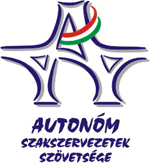
The General Confederation of Labour is a national trade union center, founded in 1895 in the city of Limoges. It is the first of the five major French confederations of trade unions.

The Norwegian Confederation of Trade Unions is a national trade union center, decidedly the largest and probably the most influential umbrella organization of labour unions in Norway. The 21 national unions affiliated to the LO have almost 1,000,000 members of a Norwegian population of 5 million. The majority of affiliated unions organizes traditional blue collar workers, but the largest affiliate is the Norwegian Union of Municipal and General Employees which makes up more than a third of all members. LO is affiliated to the ITUC and the ETUC.
A national trade union center is a federation or confederation of trade unions in a country. Nearly every country in the world has a national trade union center, and many have more than one. In some regions, such as the Nordic countries, different centers exist on a sectoral basis, for example for blue collar workers and professionals.
LO, The Danish Confederation of Trade Unions was founded in 1898 and was an umbrella organisation for 18 Danish trade unions. At the end of 2018, it merged into the new Danish Trade Union Confederation.
Akademikerne – The Danish Confederation of Professional Associations Danish: Akademikerne was founded in 1972 and a national trade union center for 25 Danish trade unions.
FTF – Confederation of Professionals in Denmark was founded in 1952 and was one of the three national trade union centers, with about 80 Danish trade unions affiliated.

The Autonomous Trade Union Confederation (ASzSz) in a national trade union center in Hungary. It has a membership of 120,000.

The Democratic Confederation of Free Trade Unions (LIGA) in a national trade union center in Hungary. It was founded in 1989.
The Forum for the Cooperation of Trade Unions (SZEF) is a national trade union center in Hungary. With a membership of 274,000 the SZEF represents mainly white collar workers in education, social services and health care, cultural institutes and government agencies.

The National Federation of Workers' Councils (MOSz) is a national trade union center in Hungary. It was formed in 1989 and has a membership of 56,000 in 12 branches.

The National Confederation of Free Trade Unions of Romania – Brotherhood is the largest national trade union center in Romania. It was created from the 1993 merger of the National Confederation of Free Trade Unions of Romania (CNSLR) and Frăţia.
The National Trade Union Confederation is a national trade union center in Romania. It was founded June, 1990 and has a membership of 325,000.

The Tunisian General Labour Union is a national trade union center in Tunisia. It has a membership of more than one million and was founded January 20, 1946.
The Hungarian Round Table Talks were a series of formalized, orderly and highly legalistic discussions held in Budapest, Hungary in the summer and autumn of 1989, inspired by the Polish model, that ended in the creation of a multi-party constitutional democracy and saw the Communist Party lose its 40-year grip on power.

Sándor Nagy was a Hungarian trade unionist and politician, Member of Parliament between 1980–1985, 1988–1990 (MSZMP) and 1994–2006 (MSZP). He was leader of the Socialists' parliamentary group between 1 January 2001 and 14 May 2002. He served as Political State Secretary of the Prime Minister's Office from 2002 to 2006.

The Erzsébetliget Theatre is a theatre in Mátyásföld, Budapest.

Poland–Tanzania relations refers to the diplomatic relations between the Republic of Poland and the United Republic of Tanzania. Both nations are members of the United Nations and the World Trade Organization.

Sándor Gáspár was a Hungarian communist politician and trade unionist.
Trade unions in Norway first emerged with the efforts of Marcus Thrane and the formation of the Drammen Labour Union in 1848 which organised agricultural workers and crofters. However, with Thrane's imprisonment and the suppression of the union in 1855, it was not until 1872 before a union was founded again, by print workers. In 1899 the first national federation, the LO, was founded. During this period interactions with trade unions in Denmark and Sweden played a great influence over the development of trade unions in Norway.











